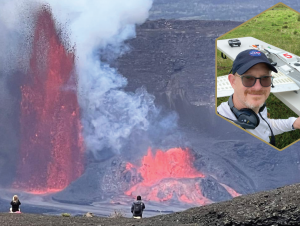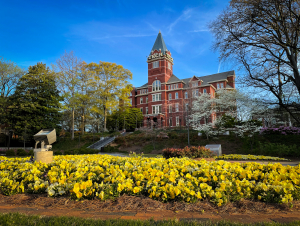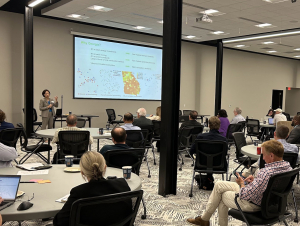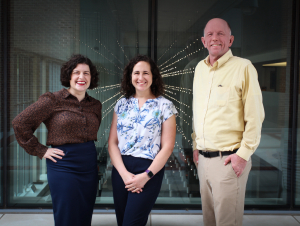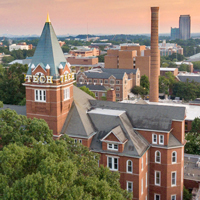Latest News
The world’s largest robotics conference is coming to Atlanta, and 136 researchers and students from Georgia Tech will showcase their novel and groundbreaking contributions to a booming field.
Georgia Tech braves an active volcano to field test an instrument for a private space mission to Venus.
Each spring, Georgia Tech recognizes the achievements and excellence of students, staff, and faculty across the Institute. Dozens of members of the College of Sciences community were honored during celebrations held in March and April 2025.
On April 29, nearly 70 attendees representing 36 organizations from industry, government, academia, and nonprofits gathered at the Middle Georgia Regional Commission for the third Georgia Partnerships for Essential Minerals (GEMs) Workshop, held jointly with the Growing Resilience for America’s Critical Mineral Economy (GRACE) Engine initiative. The workshop marked a pivotal step in the region’s critical mineral strategy, bringing together leaders across sectors to align priorities and accelerate ecosystem development.
Students from all majors are invited to register for the new Minor in Astrobiology at Georgia Tech. Welcoming its first enrolled students in Fall 2025, the minor is the latest degree offering from the College of Sciences and Georgia Tech Astrobiology Program.
Every time you use your phone, open your computer or listen to your favorite music on AirPods, you are relying on critical minerals.



